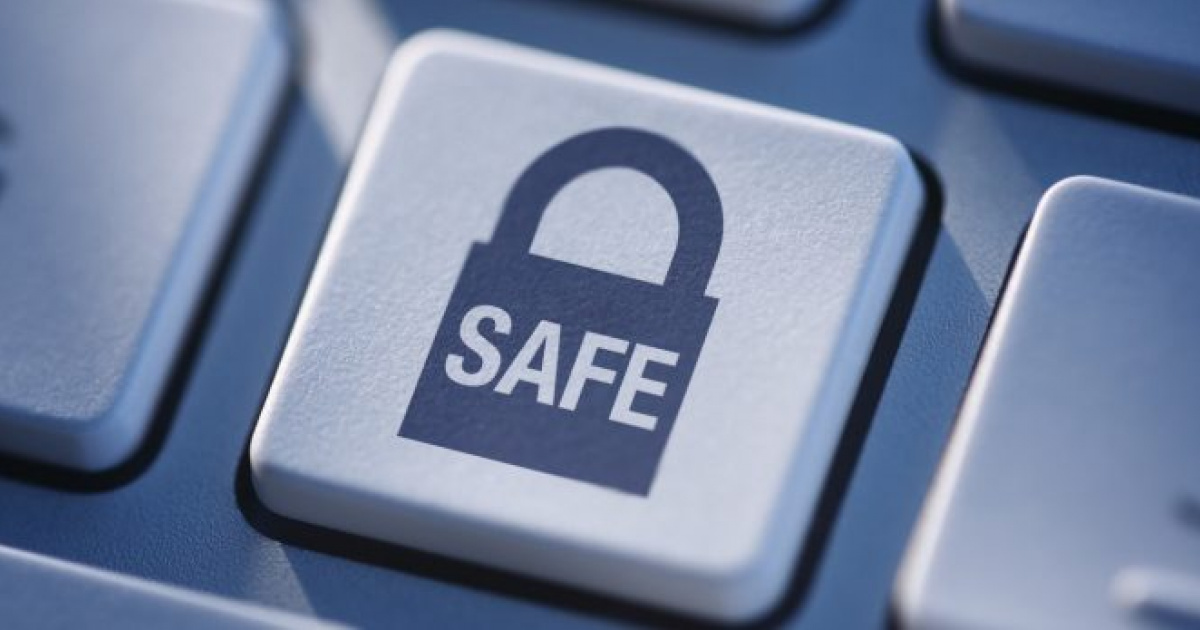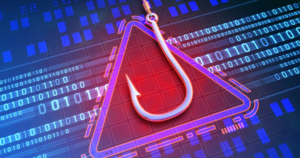Online Privacy: A Comprehensive Guide to Protecting Your Personal Data
In today’s digital age, the concept of online privacy has become more critical than ever before. We’re constantly connected to the internet, sharing personal information, and conducting various activities online. As we navigate this vast digital landscape, our online privacy is at stake, and the concerns surrounding the security of our personal data continue to grow.
Understanding Online Privacy
What is online privacy? Online privacy refers to your ability to control and manage your personal information when using the internet. It encompasses how data about you is collected, stored, and used, as well as your ability to keep it confidential.
Your online presence, often referred to as the “digital footprint,” is the trail of data you leave behind as you engage with online platforms and services. This can include your social media activity, search history, and more. Understanding the depth and breadth of your digital footprint is crucial to safeguarding your online privacy effectively.
Risks to Your Online Privacy
![]()
Data breaches and their consequences Data breaches occur when sensitive information, such as personal and financial data, is accessed and disclosed by unauthorized parties. The consequences of data breaches can be far-reaching, including identity theft, financial loss, and reputational damage.
Privacy invasion and cyber threats Privacy invasion happens when your personal space is breached, both online and offline. It can involve hacking, stalking, or the unauthorized use of your data. Cyber threats, on the other hand, encompass various online dangers, such as malware, ransomware, and phishing attacks, which can compromise your online privacy.
The role of corporations and advertisers Corporations and advertisers play a significant role in shaping online privacy. They collect vast amounts of user data to target ads, often without the user’s full understanding or consent. This practice raises concerns about data misuse and the erosion of individual privacy.
Legislation and Privacy Regulations
GDPR (General Data Protection Regulation) The General Data Protection Regulation is a comprehensive data protection law that applies to the European Union and affects global organizations that process EU residents’ data. It sets strict regulations on data protection, user consent, and the handling of personal data.
CCPA (California Consumer Privacy Act) The CCPA grants California residents more control over their personal information. It allows them to request what data is collected, who it’s shared with, and even request the deletion of their data from company databases.
Other global privacy laws Beyond GDPR and CCPA, numerous other privacy laws and regulations exist worldwide, each aiming to protect the personal data of individuals. Familiarizing yourself with your local privacy laws is essential for safeguarding your online privacy.
Protecting Your Personal Data

Strong and unique passwords A fundamental step in securing your online presence is to use strong, unique passwords for every online account. Avoid easily guessable passwords, and consider using a password manager to help you generate and store them securely.
Two-factor authentication (2FA) 2FA adds an extra layer of security to your accounts by requiring a second form of verification, such as a one-time code sent to your mobile device. It’s an effective way to prevent unauthorized access.
Secure your devices and networks Ensure that your devices are protected with up-to-date antivirus software and security patches. Secure your home network with a strong password to prevent unauthorized access to your Wi-Fi and connected devices.
Browsing Safely
Web browser security settings Learn to adjust your web browser’s security settings to protect against malicious websites, tracking cookies, and intrusive advertisements. These settings can help maintain your privacy while browsing.
Private browsing modes Most web browsers offer private or incognito modes, which prevent the storage of your browsing history, cookies, and other data. Using these modes can help you maintain your online privacy.
VPNs (Virtual Private Networks) A VPN is a powerful tool that can encrypt your internet connection, making it more challenging for third parties to monitor your online activities. Consider using a VPN, especially when using public Wi-Fi networks.
Social Media Privacy
Adjusting privacy settings Take the time to review and customize the privacy settings on your social media accounts. You can control who sees your posts, limit the information shared, and reduce the exposure of your personal data.
Sharing responsibly Think twice before sharing personal information online. Avoid oversharing, and be cautious when accepting friend requests or connections from people you don’t know personally.
Recognizing and avoiding scams Be vigilant about scams and phishing attempts on social media. These can trick you into revealing personal data, so stay informed and report suspicious activities.
Email and Communication Privacy
Encrypting emails Using email encryption tools like PGP (Pretty Good Privacy) can help secure the content of your emails from prying eyes.
Secure messaging apps Opt for messaging apps with end-to-end encryption, which ensures that only you and the recipient can read your messages. Popular choices include Signal, WhatsApp, and Telegram.
Protecting your phone number Be cautious about sharing your phone number online and ensure it is not readily accessible to strangers. Use two-factor authentication to protect your phone number from unauthorized use.
Online Shopping and Financial Privacy

Safeguarding your financial information When making online purchases, verify the security of the website, and use secure payment methods, like credit cards or digital wallets, to protect your financial data.
Safe online shopping practices Only shop on reputable websites, and avoid clicking on suspicious links or downloading files from unknown sources. Beware of fake e-commerce sites and counterfeit products.
Avoiding phishing and fraud Recognize the signs of phishing emails and fraudulent schemes. Never share your financial or personal information in response to unsolicited requests.
Public Wi-Fi and Mobile Data Security
Risks of using public Wi-Fi Public Wi-Fi networks can be vulnerable to attacks. Avoid accessing sensitive data, such as online banking or confidential emails, on public Wi-Fi networks.
How to protect your data on public networks If you need to use public Wi-Fi, consider using a VPN to encrypt your connection and protect your data from potential eavesdroppers.
Mobile data security tips Secure your mobile devices with strong passwords or biometric authentication methods, and regularly update your apps and operating system to patch known security vulnerabilities.
Data Backup and Data Recovery
Importance of data backup Regularly back up your important data to a secure location or cloud storage. This ensures that you can recover your data in case of loss or a cyber incident.
Backup methods and tools Explore various backup methods, such as automated cloud backups, external hard drives, or network-attached storage (NAS). Choose a method that suits your needs.
Data recovery in case of data loss In the unfortunate event of data loss, having a backup can be a lifesaver. Learn how to restore your data from backups and use data recovery tools when necessary.
Online Privacy for Children and Teens
Teaching kids about online privacy Educate children and teenagers about the importance of online privacy, responsible internet use, and the potential risks they may encounter online.
Parental control tools and guidance Use parental control software and tools to manage and monitor your child’s online activities. Set boundaries and offer guidance on safe online behavior.
Monitoring online activities Regularly check your child’s online interactions, friends, and posts, while maintaining open and honest communication about online privacy.
Staying Informed and Updated
Keeping up with privacy news Stay informed about the latest developments in online privacy, including data breaches, new regulations, and emerging threats. Knowledge is your best defense.
Regularly reviewing and updating your privacy settings Take the time to periodically review and update your privacy settings on various platforms and devices. As technology evolves, so should your defenses.
Being a responsible digital citizen As you navigate the digital world, remember that responsible online behavior not only protects your privacy but also contributes to a safer and more secure internet for everyone.
Conclusion
In the ever-evolving landscape of online privacy, it’s essential to stay vigilant and proactive in safeguarding your personal data. Empower yourself with the knowledge and tools needed to protect your online privacy. By following the comprehensive guide outlined here, you can navigate the digital realm with confidence, knowing that your personal data is secure. Your online privacy is a valuable asset, so guard it with care.
Frequently Asked Questions (FAQ) on Online Privacy
What is online privacy, and why is it important?
Online privacy is the ability to control the information you share and prevent unauthorized access to your personal data while using the internet. It’s important because it helps protect your sensitive information, prevents identity theft, and ensures your personal data isn’t misused.
What is a digital footprint?
Your digital footprint is the trail of data you leave behind while using the internet. It includes your online activities, such as web searches, social media posts, and website visits. Understanding and managing your digital footprint is crucial for safeguarding your online privacy.
How do data breaches affect me?
Data breaches can expose your personal data to malicious actors, leading to identity theft, financial fraud, and other serious consequences. Even if you’re not directly responsible for a breach, the fallout can still impact you.
What can I do to protect my online privacy?
To protect your online privacy, use strong and unique passwords, enable two-factor authentication, secure your devices and networks, adjust your web browser settings, and consider using a VPN for added security.
What are GDPR and CCPA, and how do they impact online privacy?
GDPR (General Data Protection Regulation) and CCPA (California Consumer Privacy Act) are regulations designed to protect individuals’ personal data. GDPR applies to the European Union, while CCPA focuses on California. They grant users greater control over their personal information and how it’s used.
How can I create strong and unique passwords?
Strong passwords should be complex, using a combination of upper and lower case letters, numbers, and special characters. Avoid easily guessable information like birthdays or common words. Password managers can help you generate and store these passwords securely.
What is two-factor authentication (2FA), and how does it work?
2FA adds an extra layer of security by requiring you to provide a second form of verification, such as a code sent to your mobile device, in addition to your password. This additional step enhances your account security.
Why should I use a VPN (Virtual Private Network)?
VPNs encrypt your internet connection, making it challenging for third parties to monitor your online activities. They are particularly useful when using public Wi-Fi networks or when you want to maintain anonymity online.
How can I adjust my social media privacy settings?
Most social media platforms allow you to customize your privacy settings. You can control who can see your posts, limit the information shared, and reduce the exposure of your personal data in your profile.
What should I do to stay informed and updated about online privacy?
Staying informed about online privacy involves keeping up with the latest developments, privacy news, and emerging threats. Regularly review and update your privacy settings, and practice responsible online behavior to contribute to a safer digital environment for everyone.
In our previous post on Internet of Things (IoT) Security, we delved into the importance of safeguarding your connected home against cyber threats. It’s a topic that aligns seamlessly with our current discussion on online privacy. Just as we emphasized the need to secure your smart devices, this comprehensive guide on online privacy also underscores the significance of keeping your personal data safe in the digital world. To ensure you have a well-rounded understanding of maintaining security and privacy in today’s interconnected landscape, we recommend revisiting our IoT security post: Internet of Things (IoT) Security: Safeguarding Your Connected Home.
For further insights into protecting your online privacy, we encourage you to explore an informative guide on Medium titled “How to Protect Your Privacy Online: A Comprehensive Guide.” Authored by Aimann Adeem, this guide offers a holistic view of safeguarding your personal data and navigating the digital landscape securely. You’ll find in-depth tips and strategies to enhance your online privacy. To gain additional perspectives on this crucial topic, please visit the following link: How to Protect Your Privacy Online: A Comprehensive Guide.







Uma resposta